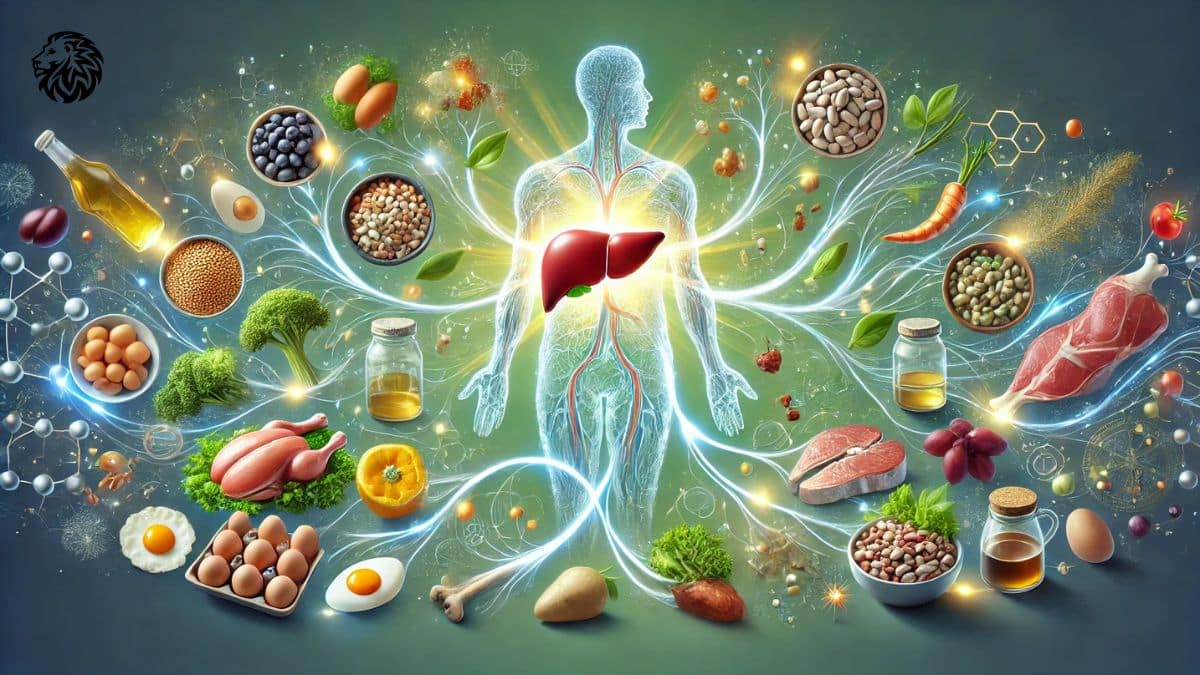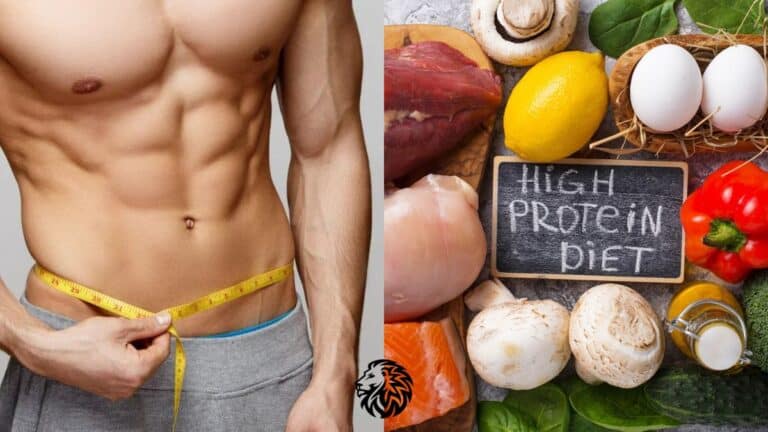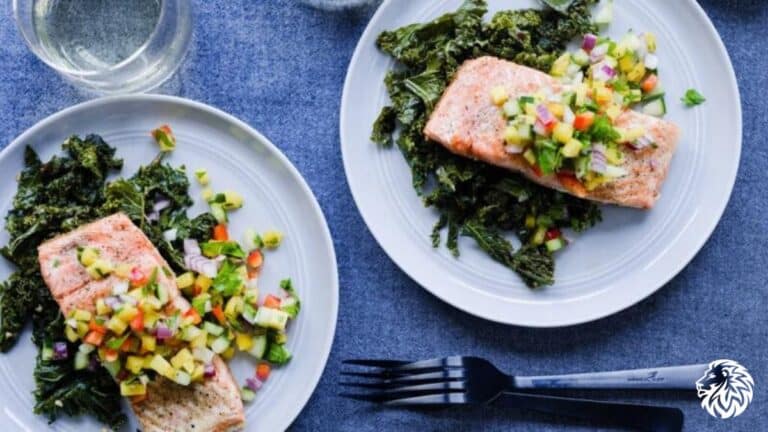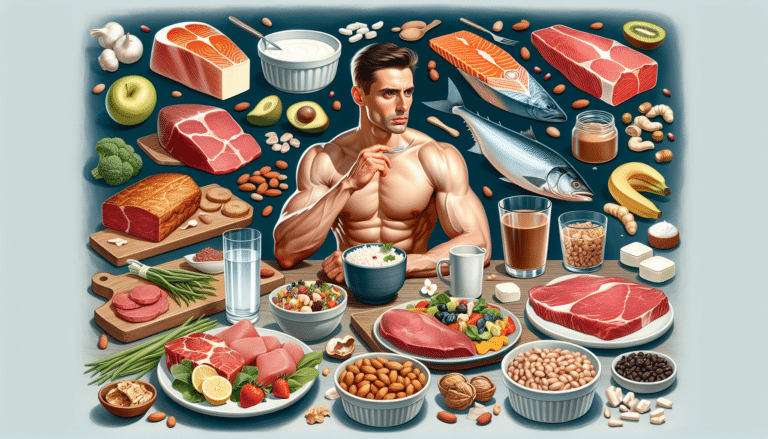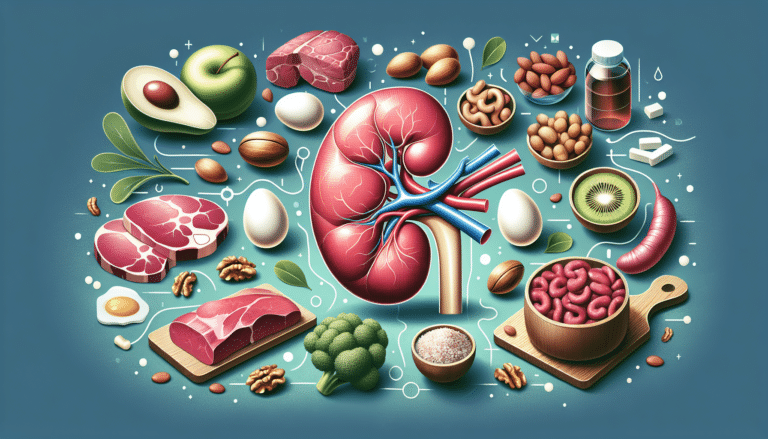Role of Proteins in Liver Health
Why Your Liver Needs Proteins
Proteins are like the liver’s little helpers. They’re crucial for keeping your liver in tip-top shape. Think of them as the fixers that mend tissue and prevent fat from taking over your liver cells.
Look below at this handy chart to see what proteins do for your liver:
| What Protein Does | Why It Matters |
|---|---|
| Fixes Tissue | Helps repair and regenerate what’s broken. |
| Fights Fat | Keeps fat from camping out in liver cells. |
| Keeps Cells Healthy | Maintains cell function and integrity. |
| Boosts Metabolism | Supports those all-important liver functions. |
| Powers Enzymes | Fuels enzyme production for liver processes. |
Liver Woes and Protein Absorption
When your liver’s feeling under the weather, it can mess with how you absorb the nutrients your body needs, including those trusty proteins and vitamins. This can cause annoying issues like weight changes and appetite fluctuations (MedlinePlus).
If your liver’s not on its A-game, be extra mindful of your protein. A damaged liver might have a hard time processing them, leading to waste that clouds your brain. But don’t cut back too much—those amino acids are crucial!
Managing your diet with liver health in mind? Peek at our reads on high-protein diet and cholesterol or high-protein diet benefits for tips on protein use.
| Protein Impact | What Happens |
|---|---|
| Bad Absorption | Affects weight and appetite |
| Low Protein Production | Causes vitamin deficiencies |
| Waste Trouble | Can mess with brain function |
Getting just the right protein amount is like finding the perfect balance. Our guides on best high-protein foods and high-protein diet meal ideas might just become your new best pals.
Dietary Impact on Liver Function
Influence of Diet on Liver Health
What you eat is like a backstage pass to your liver’s well-being. Every bite matters—from your favorite crunchy potato chips to that vibrant salad, it all plays a role. Your diet can totally change how your liver functions, affecting everything from your weight to your energy levels and even those important vitamins your body needs. MedlinePlus sheds some light on how our eating habits can fiddle with vitamin absorption and how proteins and vitamins are crafted by our body. So, keep that diet in check; your liver’s counting on it!
But hey, don’t skimp on protein too much. It’s your body’s building block! Without enough, you risk missing out on essential amino acids—bad news for anyone, especially if liver woes are afoot. According to NCBI, skipping on protein could lead you down the road to malnutrition and, let’s be real, no one wants that.
Specific Diet Recommendations for Liver Disease
If liver chats with the doctor are part of your routine (bummers, I know), swapping a few diet staples could be your action plan. How much you need to change? Well, that’s a conversation you’ve gotta have with the doc. They’re the food gurus who can help match your meals to your liver’s needs.
Here’s a sprinkling of advice for those looking after their liver:
- Protein-Packed: Protein isn’t just for gym buffs. It’s a must-have to keep those muscles strong and to keep you feeling like you. Cirrhosis patients may find themselves eyeing 1.0-1.5 grams of protein per kilogram of body—get that calculator out. Mixing up plant proteins with dairy, like casein, might just hit the spot.
- Calorie Counts: Keeping an eye on calories is just as important. Try aiming for 25–40 kcal per kilogram of body weight each day to steer clear of muscle loss (NCBI).
- Vitamins and Minerals Galore: Your liver is a bit like a juggler when it comes to vitamins and minerals. That’s why a balance-rich diet with your fruits, veggies, and whole grains is key.
- Chug That Water: Hydration stations, anyone? Water is your liver’s best buddy. Put down that sugary soda and stick to H2O.
For all the juicy deets on squeezing more protein into your menu, check out our scoop on the best high-protein foods.
| Nutrient | Recommended Intake for Liver Disease |
|---|---|
| Protein | 1.0-1.5 g/kg body weight/day |
| Calories | 25-40 kcal/kg body weight/day |
Following these tidbits could give you and your liver the upper hand. Got questions bubbling about your diet or symptoms? The doc’s always your go-to. For a recipe roadmap, make your way to our high-protein diet meal ideas.
High-Protein Diet and Liver Conditions
High-protein meals can be a game-changer for your liver health. Let’s chat about how sticking to such a diet may help turn back time on certain liver issues like NAFLD (a.k.a Non-Alcoholic Fatty Liver Disease) and NASH (Non-Alcoholic Steatohepatitis).
High-Protein Diets for NAFLD Reversal
Got some pesky liver troubles tied to eating habits and carrying a bit extra on the belt? Many folks with NAFLD know this all too well. The good news? A protein-packed diet might be your golden ticket. Studies give two thumbs up to these diets over carb-heavy ones for shedding pounds and sprucing up liver function.
| Diet Type | Rate of Success in NAFLD Reversal |
|---|---|
| Protein-Packed | 70% Crackin’ |
| Carb-Loaded | 45% Not Bad |
Jumping on board with popular plans like Stillman, South Beach, Atkins, or Zone could be your new best friends. They’ve been known to kick those triglyceride baddies and naughty cholesterol levels to the curb (PubMed Central). Want to join the high-protein bandwagon? Check our walk-through on getting into a high-protein diet.
Protein Power for NASH Problems
NASH is like NAFLD’s cranky cousin—it’s when your liver decides inflammation and damage should crash the party. But hey, get enough of that quality protein, and you might just see your liver throw a better shindig. Higher protein diets are credited with jazzing up hepatic function and keeping a few more folks around to see another sunrise, especially if drinks are involved (Journal of the International Society of Sports Nutrition).
With liver woes, your body might start munching through protein faster than usual. Keeping that protein level steady helps dodge more issues down the road. For those dealing with chronic hepatic encephalopathy, skipping on protein isn’t the way to go—eating it is!.
| Condition | Protein Intake Need |
|---|---|
| NAFLD | 1.2-1.5g/kg of body weight daily |
| NASH | 1.0-1.3g/kg of body weight daily |
Curious about amping up protein in your meals? Dive into our guides on high-protein foods and meal ideas for a high-protein diet.
So, there ya have it—a diet high in protein isn’t just a choice; it can be a lifeline for your liver. Customizing your plate to stay liver-friendly with a solid high-protein diet can really make a difference against liver villains like NAFLD and NASH.
Protein Intake and Ammonia Levels
Eating a lot of protein can make your blood ammonia go up, which is important to watch out for, especially if your liver ain’t exactly your best friend.
Protein Intake Impact on Blood Ammonia
Piling on protein can crank up your blood ammonia. Some brainiacs cooked up a number-crunching model and worked out that if you boost your protein intake by 72%, your ammonia goes up by 59%. So, more protein means more ammonia, and when your liver isn’t pulling its weight, that’s something to worry about.
| Scenario | Increase in Blood Ammonia Levels |
|---|---|
| 72% protein increase | 59% more ammonia |
If you’re dealing with liver cirrhosis, you might see blood ammonia levels spike anywhere from 41% to a whopping 130%, just by changing your protein input. Then there’s those folks with a funky CPS1 gene, where ammonia levels could more than triple – that’s around 18 to 60 μM based on protein gobbling.
| Condition | Increase in Blood Ammonia Levels |
|---|---|
| Liver Cirrhosis | 41% – 130% |
| CPS1 Gene Mutation | 18 – 60 μM |
Managing Ammonia Levels Through Diet
Keeping a cap on your blood ammonia is the name of the game for avoiding nasty stuff like hepatic encephalopathy. One simple trick? Keep a lid on that protein. Cutting back the chow can help your liver keep things chill.
A study with neuroblastoma cells showed that even a tiny bump in ammonia (like adding a bit more pickling ammonia, 90 μM, to the mix) could make cell survival drop by 14%. That’s a reminder to keep ammonia in check to avoid cell havoc.
If you’re scarfing down protein like there’s no tomorrow, try breaking meals into smaller bites and go for easier-to-digest options. Getting some pro tips from your doctor might not be a bad idea, too.
Get the lowdown on high-protein diet advantages and metabolism, or see how to make high-protein diet meal plans for weight loss fit snug with your life and wellness targets.
Strategies for Liver Health with Protein
Getting your protein game on point is super important, especially if you’re dealing with liver troubles. Protein is your ally—it keeps those muscles strong and gets your body working the way it should.
Muscle Mass and Liver Health
If your liver’s not in the best shape, your muscles might suffer, too. It’s a combo often seen in liver issues like fatty liver disease. Losing muscle isn’t just about strength—it’s about keeping extra liver problems at bay. Protein steps in as your muscle’s best buddy, helping repair and grow them while keeping the liver in check. Here’s a handy little chart to know how much protein you should aim for:
| Activity Level | Protein Intake (g/kg of body weight) |
|---|---|
| Couch Potato | 0.8 |
| Mildly Active | 1.2 – 1.4 |
| Fitness Fanatic | 1.6 – 2.0 |
Beef, yogurt, beans—mix those into your meals to keep your muscles and liver happy. Curious about food choices? Peek at our best high-protein foods guide.
Protein Needs for Folks with Liver Woes
If you’re managing conditions like cirrhosis, your diet is your sword and shield. You’ll need a bit more protein to fend off malnutrition and muscle breakup. The recommendation is dialing in 1.0 to 1.5 grams of protein per kilogram of lean body weight daily, plus 25 to 40 calories per kilogram.
| Condition | Protein per Day (g/kg) | Cals per Day (kcal/kg) |
|---|---|---|
| Cirrhosis | 1.0 – 1.5 | 25 – 40 |
| Fatty Liver | 1.2 – 1.6 | 30 – 45 |
Keeping your protein levels up can prevent protein-calorie malnutrition, a common hurdle with liver issues. Wondering about fat-busting with high protein? Our high-protein diet for weight loss guide is waiting for you, too.
Feeling off your food or battling stomach woes? Adjust your diet as needed. Zinc also makes food taste better, so don’t shy away from it (NCBI).
For more on how protein can power up your liver, explore our high-protein diet benefits resource.
Busting Protein and Liver Myths
Let’s clear the air on protein and liver health—a topic that seems to be shrouded in hearsay and fairytales. We’ll zero in on what science really has to say about the role of protein in liver disease management.
The Real Scoop on Protein and Liver Function
Protein, your liver’s buddy, is like the handyman of your body, fixing up liver tissues and keeping things running smoothly. It’s got these things called lipotropic agents, which are little helpers that make sure fat doesn’t throw a wild party in your liver.
There’s this rumor going around that eating too much protein will knock your liver out cold. But hold your horses! Studies, and even experiments on mice with all-you-can-eat protein diets, tell a different story—the liver just cranked out more of those powerhouse mitochondria (Journal of the International Society of Sports Nutrition). It’s like the liver’s own gym session—getting stronger without waving any white flags.
Here’s the bottom line: stuffing your diet with top-tier protein can actually dial up your liver’s performance and slash death rates in folks dealing with liver problems, especially booze-related ones. Some folks over at places like the American Heart Association might argue otherwise, but there’s zilch scientific support for their claim that protein’s a villain.
Why Protein Is Your Liver’s Best Friend
If you’ve got liver troubles, protein isn’t just good for you—it’s essential. Those battling cirrhosis need more protein than the average Joe. A mix of veggie proteins and dairy delights like casein could really hit the spot (NCBI).
| What You Are | Daily Protein You Need (g/kg body weight) |
|---|---|
| Ordinary Humans | 0.8 – 1.0 |
| Cirrhosis Fighters | 1.2 – 1.5 |
Curious about ramping up your protein game? Check these out:
- Discover the best high-protein foods
- Feast your eyes on high-protein diet meal ideas
- Get the lowdown on a high-protein diet and diabetes
- See how to kickstart a high-protein diet
Jumping on the protein wagon, with a little care, can spruce up your liver and keep those scary myths at bay while shining a light on the real perks of protein.
